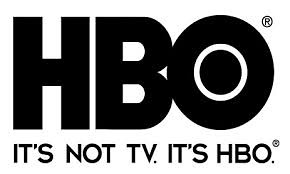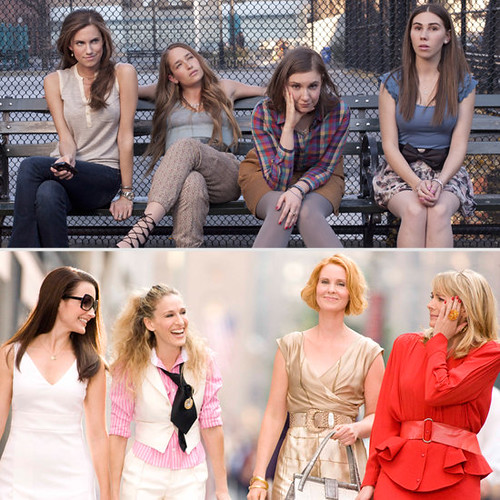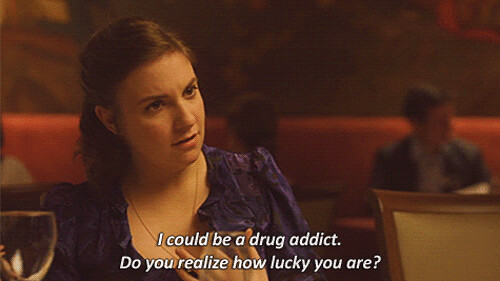TV Cultures: Blog Post #3 HBO – Branding, Genre and the Idea of ‘Quality TV’

‘It’s Not TV, It’s HBO’ – to be honest, I think the catchcry of the once prestigious and unique US cable channel is wearing pretty thin these days. You don’t have to look far to realise there’s a lot more competition out there in the world of ‘quality TV’, and simply because a show is ‘HBO’ doesn’t mean it’s necessarily a step above anything produced by AMC or Showcase or even the networks for that matter.
But still, it pays to take a look at where the HBO brand sits in the face of this relatively new competition and take stock on how big an impact it’s had in perpetrating the idea of ‘quality TV’.
HBO’s Girls is one of my favourite shows from the last few years. It’s clever, it’s funny, it’s provocative, and expectedly so. After all, HBO has been hailed for its take on niche topics and taboo culture in the 1990s, smashing down barriers with controversial prison drama Oz, iconic comedy Sex and the City and gangster drama The Sopranos. As a subscription television service, their groundbreaking original series were exempt from the usual FFC regulations imposed upon the networks, meaning fewer restrictions on nudity, language and adult themes and greater creative freedom.

Embracing the creative freedom offered by the subscription TV model, HBO utilised it as a point of brand differentiation (Jaramillo 2002). Complex narrative structures and niche programming were unique to HBO and geared towards their niche audiences: a specific class of people who could afford the subscription service. As such, the HBO brand was about cultivating a sense of high-brow programming, that is smart, complex in form, rich in auteur style and innovative (Mittell 2009).
Arguably a classist model, the HBO brand has been satirised for speaking to a particular market of wealthy white people, who like to kick back with a glass of wine on the weekend and indulge in their “critically acclaimed, low-rated, shown-on-premium cable” TV shows.
But if this is true of the HBO brand, then how and why does Girls appeal to their niche audience?
Are a bunch of upper-class, middle-aged white-folk really interested in a show about twenty-something Brooklyn hipster chicks?
I’d say sure, why not?! The beauty of HBO’s niche programming is that it doesn’t really seem to matter what the genre is, or what the series considers, so long as it’s innovative and well-executed, it will find a market. And particularly in a landscape of pirated television and illegal downloads, which are in fact being attributed as a major factor in the proliferation of HBO’s brand and the success of their shows, it would seem crazy to neglect the very demographic responsible for this particular mode of consumption of HBO’s programming: Gen Y.
Girls is a ground-breakingly fresh representation of hipster culture in the 21st century. Creator and lead actor Lena Dunham’s writing and performance perfectly captures the concerns of her character in way that represents broader issues that specifically face Gen Y.
In the very first scene of the series, her character Hannah is confronted by her parents’ news that they will no longer financially support her. She rebuts with the argument that she works hard, she just can’t make any money from her writing yet, and points out the bleak state of the American economy at the time. Overeducated, unemployed and compelled to work for free, Hannah tries with no success to explain why she can’t yet support herself financially if she’s going to continue to follow the career she’s working towards. Throughout the episode, she experiences conflicts relating to family, friendship, careers, sex, love and drugs – none of which are sugar-coated, which is the essence of HBO’s no-bars-hold ‘brand’ of programming.
It is a comedy, but I’d have to concede that it more so fits HBO’s claim to genre by perpetrating brazen, innovative narratives that trump traditional generic conventions.
I have work, and then I have a dinner thing, and then I am busy—trying to become who I am
The conflicts may not be as grandiose as the gangster showdowns in The Sopranos, and the relationship dramas may not be as romantically enthralling as Sex and the City’s Big-and-Carrie saga. But the relationships and conflicts explored in Girls offer an honest, unabashed take on the issues and concerns of a niche demographic in a way that reasserts HBO’s branding and the ideas of ‘quality TV’.
Jaramillo, D 2002 ‘The Family Racket: AOL Time Warner, HBO, ‘The Sopranos’, and the construction of a quality brand’, Journal of Communication Inquiry, vol. 26, no. 1, p. 59
Mittell cited in Dunleavy, Television Drama (2009)
